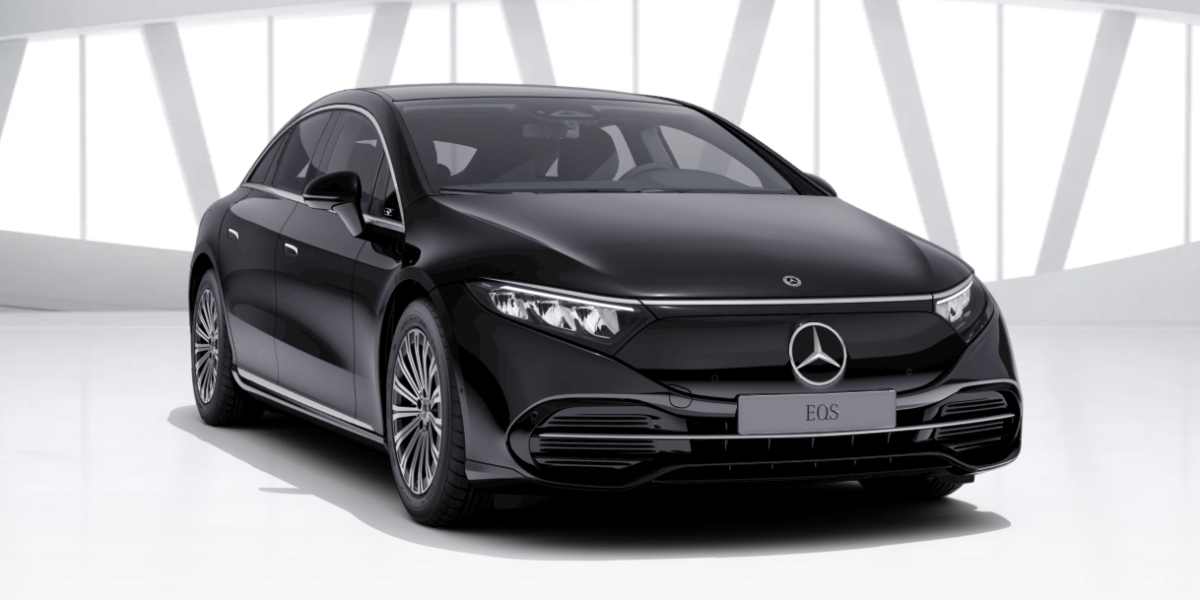
Mercedes launches the EQS 350 in Germany
Mercedes launches the EQS 350 in Germany
 The Mercedes EQS can now also be ordered in Germany as a base model for under 100,000 euros. Following the EQS 450+ and EQS 580 4MATIC variants with the large 108 kWh battery, which have been available to order since August, now comes the EQS 350 with 90 kWh battery, which is available from 97,806.10 euros.
The Mercedes EQS can now also be ordered in Germany as a base model for under 100,000 euros. Following the EQS 450+ and EQS 580 4MATIC variants with the large 108 kWh battery, which have been available to order since August, now comes the EQS 350 with 90 kWh battery, which is available from 97,806.10 euros.
Daimler had announced the smaller 90-kWh battery from the outset – it has ten modules instead of twelve as in the 107.8-kWh version – but only the larger battery was available at market launch. In April, Christoph Starzynski, head of Mercedes-EQ, explained that a conscious decision had been made to go for the large battery and the maximum range at the start. “We are only at the beginning with the new platform,” Starzynski said. “The 90 kWh version will be announced for some markets towards the end of the year.”
That is now the case, with the start of ordering there is not only the official model designation EQS 350, but also the technical data on which Mercedes had previously remained silent. Specifically, the battery comes with an energy content of 90.56 kWh, which should allow a WLTP range of between 529 and 638 kilometres – depending on equipment, aerodynamics and weight.
The WLTP consumption is between 16.4 and 20.0 kWh/100km. Unfortunately, the WLTP range cannot be inferred from the battery size and consumption. The WLTP consumption is given including charging losses, but the range without.
The electric motor installed in the rear produces 215 kW and accelerates the EQS to 100 km/h in 6.6 seconds. As with the other non-AMG versions of the EQS, the top speed is 210 km/h. As Daimler has not yet published a press release on the sales launch of the EQS 350, there is no further confirmed information on the powertrain. We assume that it is also the six-phase permanently excited synchronous motor, which comes to a lower peak power due to the lower performance of the small battery.
The market launch of the EQS 350 was discovered by the German edition of InsideEVs rather by chance when they looked up the WLTP consumption of the EQS in a PDF price list for another article. The technical data listed here comes from the configurator. For example, the maximum DC charging power with the smaller battery is 170 kW (instead of 200 kW for the large battery), and the charging time from ten to 80 per cent is given as 32 minutes instead of 31. This results in an average power of 121 kW for this charging hub – almost 64.4 kWh are recharged in these 32 minutes. AC charging remains at 11 kW, and Mercedes specifies a charging time of eight hours from ten to 100 per cent in the configurator.
The unladen weight of the EQS 350 is 2,390 kilograms, the payload 520 kilograms. In addition, the EQS can carry a roof load of up to 100 kilograms (which must then be deducted from the payload), and the towing capacity is 750 kilograms.
EQ head Starzynski stated that the small battery will only be offered in some markets for the time being. In the UK, the EQS 450+ is still the available basic model.

